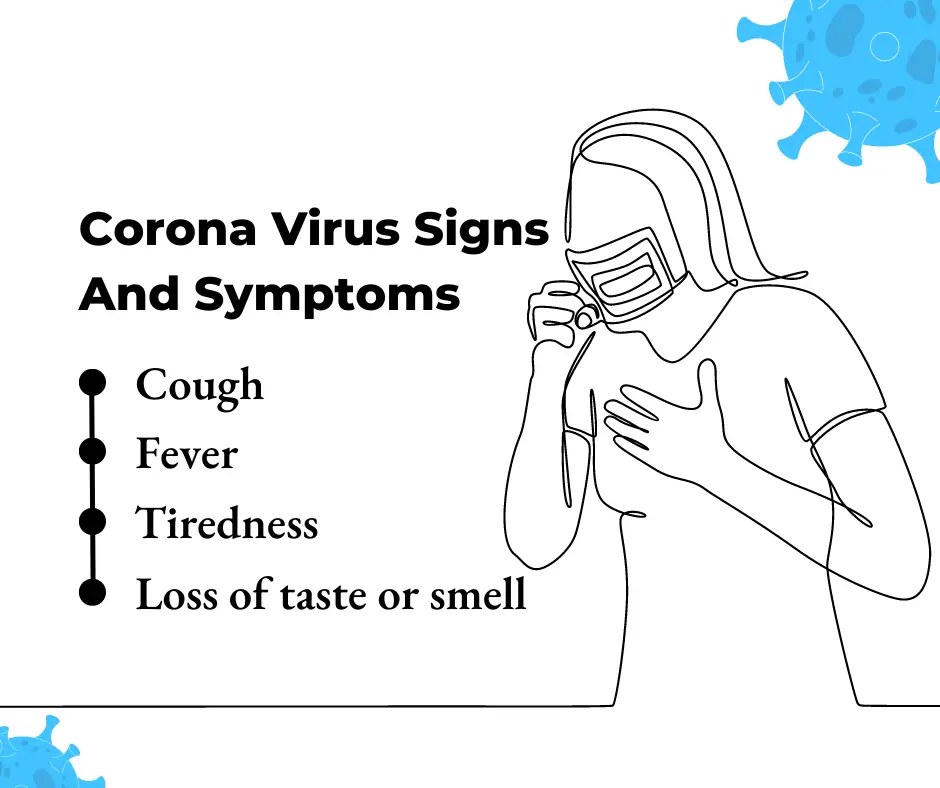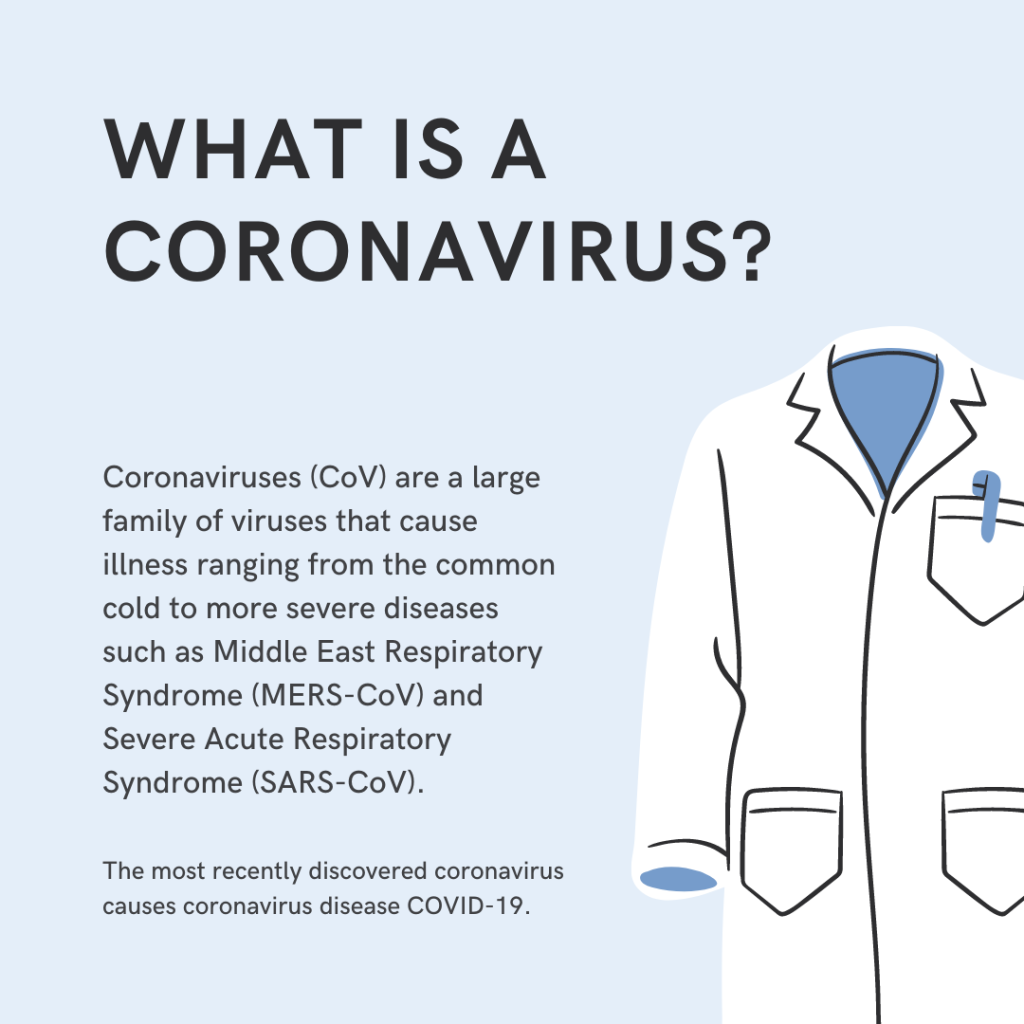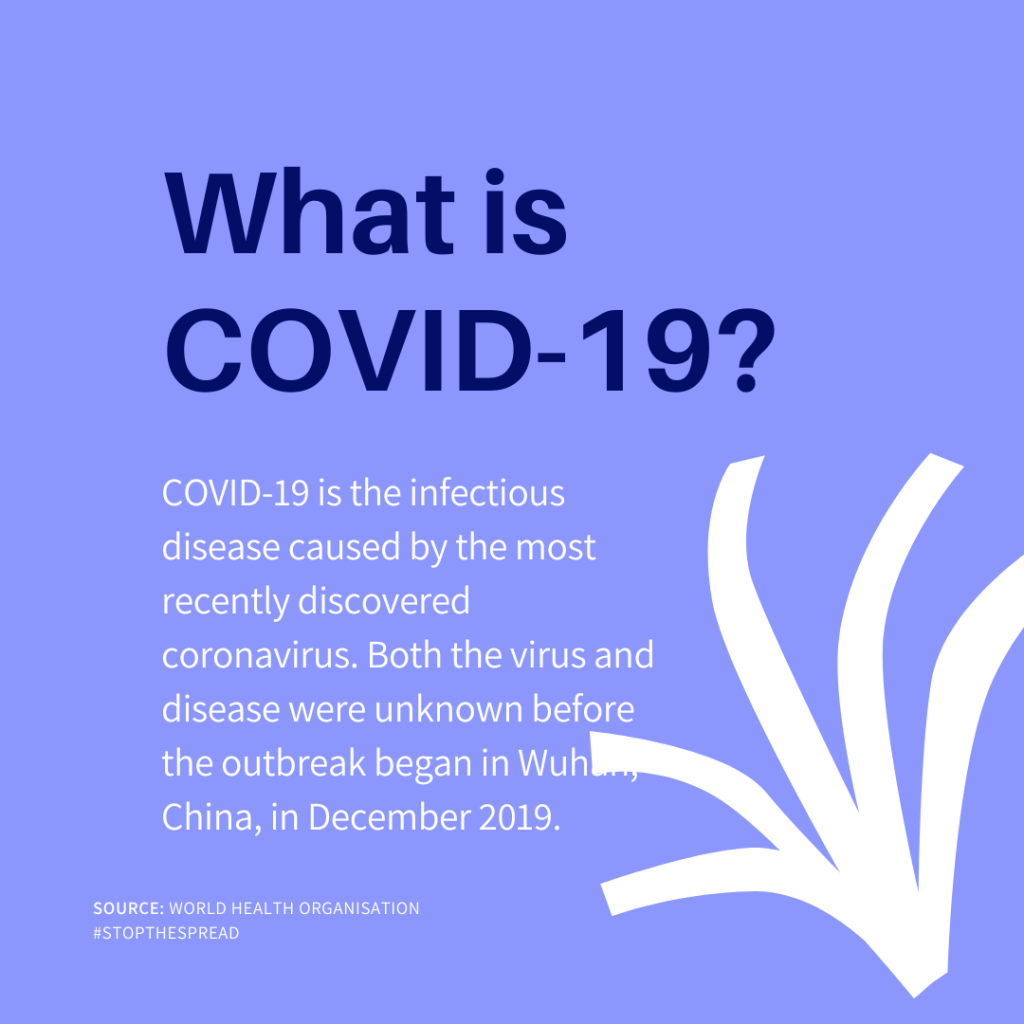COVID-19 has impacted the world in numerous ways, affecting our daily lives, the economy, and public health.
While many focus on the immediate concerns of the virus, like infection rates and vaccines, there’s another critical aspect to consider—the long-term effects of COVID-19.
This article aims to shed light on what these long-term effects are, who’s at risk, and how to manage them.
The Long-Term Effects of COVID-19: What You Need to Know 2023
The term “Long COVID” is increasingly becoming a part of our vocabulary.
It refers to a range of symptoms that continue to affect some people for weeks or months after the acute phase of a COVID-19 infection has resolved.
The long-term impact can be both physical and mental, affecting quality of life and leading to ongoing health concerns.
Chronic Fatigue: More than Just Tiredness in COVID-19 Survivors
Chronic fatigue is a term you might hear a lot when discussing the long-term effects of COVID-19.
But what does it actually mean? Many of us know what it’s like to feel tired after a long day, but chronic fatigue is a whole different ball game.
This lingering symptom is one of the most common complaints from those who’ve recovered from COVID-19, and it’s essential to understand its impact and how to manage it.
What is Chronic Fatigue?
Chronic fatigue is not the kind of tiredness that you can shake off with a good night’s sleep or a cup of coffee.
It’s a long-lasting, debilitating exhaustion that can make everyday activities feel like huge challenges.
Even things like taking a shower or going to the grocery store can become difficult.
How Does It Affect Daily Life?
Imagine waking up in the morning and feeling like you haven’t rested at all, even if you’ve had a full night’s sleep.
The exhaustion can affect you both physically and mentally. Simple tasks may require a lot more effort, which can be frustrating and stressful.
In some cases, it can even impact your ability to work or study, leading to a loss of income or falling behind in school.

Why Does COVID-19 Cause Chronic Fatigue?
While the exact reason is still under study, it’s believed that the virus may cause inflammation in various organs and tissues, including muscles.
This inflammation could lead to prolonged tiredness.
Also, the stress and mental toll of experiencing a severe illness can contribute to feelings of exhaustion.
Who is More Likely to Experience It?
Chronic fatigue seems to affect people regardless of their age or how severe their initial COVID-19 symptoms were.
However, those with pre-existing health conditions may be more susceptible to experiencing long-lasting fatigue.
Managing Chronic Fatigue
If you’re dealing with chronic fatigue, it’s essential to consult with your healthcare provider for a personalized treatment plan. It could include:
Medication
There may be medications that can help manage your symptoms. Always consult with your healthcare provider for the best treatment for you.
Physical Therapy
A structured exercise program could help you regain your strength and stamina. But it’s crucial to consult a healthcare provider before starting any new exercise regimen.
Lifestyle Changes
Eating a balanced diet, staying hydrated, and getting enough sleep may help manage symptoms.
Stress management techniques like meditation and deep-breathing exercises may also help.

Respiratory Issues: The Lingering Cough and Beyond
Respiratory issues are often a central concern when it comes to COVID-19, both during the acute phase of the infection and in the long term.
While many people recover without any lingering symptoms, others are not so fortunate.
This section delves into the various types of respiratory problems that can continue to plague COVID-19 survivors long after they’ve recovered from the initial infection.
Types of Respiratory Issues
Lingering Cough
Some people continue to experience a persistent cough that doesn’t go away easily. This can be particularly troublesome at night, affecting sleep quality.
Shortness of Breath
Also known as dyspnea, this symptom can make even small physical tasks, like walking short distances, difficult. Climbing stairs might become an exhausting endeavor for some.
Asthma-like Symptoms
For those who didn’t have asthma before, COVID-19 can trigger asthma-like symptoms, including wheezing and tightness in the chest.
Chronic Obstructive Pulmonary Disease (COPD)
In some severe cases, COVID-19 survivors may develop COPD, a long-term condition that makes it hard to breathe and may require ongoing medical treatment.
Why Do These Issues Persist?
The reasons for ongoing respiratory issues are complex and not entirely understood.
The virus can cause damage to the lungs, leading to scarring or inflammation that takes time to heal.
Furthermore, the immune response triggered by the virus may have lingering effects on the respiratory system.

Impact on Quality of Life
Persistent respiratory issues can significantly affect your daily life.
Activities you once took for granted, like playing with your kids, going for a jog, or doing household chores, can become challenging.
Social activities may also be impacted, as even talking for extended periods can become tiring.
Diagnosis and Treatment
If you’re experiencing long-term respiratory symptoms, it’s crucial to get a proper diagnosis.
Tests may include chest X-rays, lung function tests, and other imaging studies. Treatment will depend on the specific issues you’re facing and may involve:
Medications
Inhalers, steroids, or other medications may be prescribed to manage symptoms and improve lung function.
Pulmonary Rehabilitation
This is a specialized program that helps improve lung function through exercise, education, and support.
Oxygen Therapy
In extreme cases, supplemental oxygen may be required to help with breathing.
Moving Forward
Respiratory issues can be a significant concern for COVID-19 survivors, impacting both physical well-being and quality of life.
However, with proper diagnosis and treatment, many of these symptoms can be managed effectively.
As we continue to learn more about the virus and its long-term effects, the hope is that more targeted treatments will become available to help those dealing with persistent respiratory issues.

Brain Fog: When Thinking Gets Cloudy
Memory Problems
You might find it difficult to remember names, dates, or even what you did a few hours ago. This can be especially frustrating when you’re trying to focus on tasks that require concentration.
Difficulty in Making Decisions
Simple decisions like what to eat for lunch or how to prioritize your day can become overwhelming, leading to stress and anxiety.
Reduced Attention Span
You may notice that you’re easily distracted or find it challenging to focus on one task for an extended period.
Language and Speech Issues
Finding the right words during conversations or struggling with language can also be signs of brain fog.
Why Does It Occur?
While the exact cause of brain fog post-COVID is still under research, there are several theories:
Inflammation
COVID-19 might cause inflammation in the brain or nervous system, affecting cognitive function.
Stress and Anxiety
The mental toll of dealing with a severe illness, especially one as unprecedented as COVID-19, can contribute to brain fog.

Sleep Quality
Chronic fatigue and poor sleep, often associated with post-COVID symptoms, can also affect mental clarity.
Managing Brain Fog
Cognitive Behavioral Therapy (CBT)
Therapeutic approaches like CBT can help you develop coping strategies for dealing with cognitive issues.
Healthy Lifestyle Choices
Regular exercise, a balanced diet rich in omega-3 fatty acids, and adequate sleep can help improve cognitive function.
Consult a Professional
A neurologist or psychologist can provide a comprehensive treatment plan, which may include medications or other therapies aimed at improving cognitive function.
Mindfulness Techniques
Meditation and mindfulness can help you become aware of your thoughts and make it easier to focus your attention.
Loss of Taste and Smell: The Missing Senses
The loss of taste and smell is one of the unique and baffling symptoms associated with COVID-19.
While some may dismiss these senses as less critical compared to others, they actually play a vital role in our daily lives and overall well-being.
Understanding the Importance of Taste and Smell
Taste and smell do more than just make food enjoyable. They serve as early warning systems for spoiled food or dangerous chemicals, contribute to emotional experiences, and even influence social interactions.
How it Impacts Daily Life
Food and Nutrition
Losing your sense of taste and smell can make eating a mundane or even unpleasant task, leading to loss of appetite and unintentional weight loss.
This can further complicate efforts to stay healthy, as you might not get the nutrients your body needs.
Safety Concerns
Without the ability to smell, you may not notice potentially dangerous situations like a gas leak in your home or spoiled food.
Emotional Well-Being
Smell is closely tied to memory and emotion. The loss of these senses can make you feel disconnected from your environment and affect your mental health.
Why Do These Symptoms Persist?
The exact reason behind the persistent loss of taste and smell due to COVID-19 is still under research.
It’s believed that the virus may affect the nerve cells responsible for these senses.
Some people experience a gradual return of these senses, while others continue to struggle for months.
Recovery and Coping Strategies
Smell Training
This involves sniffing a variety of strong smells like lemon, mint, and cinnamon regularly to stimulate the olfactory system.
Some people have reported success with this approach.
Spice It Up
For those with altered taste, increasing the use of herbs and spices in meals may make food more palatable.
Focus on Texture
When taste is compromised, other aspects like the texture of food can become more prominent.
Foods that are crunchy, creamy, or have other distinct textures can make eating more enjoyable.
Professional Help
If the loss of these senses is affecting your quality of life significantly, consult an Ear, Nose, and Throat (ENT) specialist.
They can rule out other underlying issues and may recommend specific treatments.
The Road Ahead
The loss of taste and smell can be a lingering symptom that impacts your daily life in various ways.
While research is ongoing, implementing some of the coping strategies mentioned above can help improve your quality of life.
Consult with healthcare professionals for a tailored treatment plan, and keep an eye on new research findings that might offer more solutions.
Heart Problems: An Unexpected Consequence
COVID-19 has made headlines mainly as a respiratory disease, but its impact doesn’t end there.
An unexpected and concerning consequence of the virus is its effect on the heart. From inflammation to irregular heartbeats, these cardiovascular issues can be long-lasting and may require ongoing medical attention.
One of the most talked-about heart-related conditions in relation to COVID-19 is myocarditis.
Types of Heart Problems After COVID-19
Heart Inflammation
Also known as myocarditis, this is an inflammation of the heart muscle that can affect the heart’s ability to pump blood effectively.
Irregular Heartbeats
Some people report experiencing arrhythmias or irregular heartbeats, which can be both alarming and dangerous if not managed properly.
Blood Clots
COVID-19 can increase the risk of blood clots, which can lead to heart attacks or other serious cardiovascular events.
Understanding Myocarditis
Myocarditis is a specific type of heart inflammation that has been reported in some COVID-19 survivors.
It can lead to various symptoms, including chest pain, shortness of breath, and fatigue.
If left untreated, it can cause severe complications such as heart failure.
Causes of Myocarditis
Though usually caused by viral infections, the mechanism behind COVID-19-induced myocarditis is still under study.
It’s suspected that the virus directly infects the heart muscle or triggers an excessive immune response, leading to inflammation.
Diagnosis and Treatment
Diagnosis often involves tests like an echocardiogram, which is an ultrasound of the heart, or a cardiac MRI.
Treatment generally includes medications to manage symptoms and may require hospitalization in severe cases.
Long-term Implications
Heart problems like myocarditis can have serious long-term implications.
If the heart muscle becomes weak, it can lead to heart failure over time. Monitoring and regular check-ups are crucial for anyone who experiences heart symptoms after recovering from COVID-19.
How to Protect Your Heart
Medical Consultation
Regular check-ups with a healthcare provider can help monitor heart health and adjust treatment plans as needed.
Lifestyle Changes
Eating a balanced diet, regular exercise, and avoiding smoking and excessive alcohol can support heart health.
Medication
Anti-inflammatory drugs and other medications may be prescribed to manage symptoms and protect the heart from further damage.
Mental Health Effects: Don’t Ignore the Mind
When people think of COVID-19, they often focus on the physical symptoms, such as coughing, fever, and breathing difficulties.
But the virus also has a significant impact on mental health, an aspect that should not be ignored.
From anxiety and depression to post-traumatic stress disorder (PTSD), the mental health consequences of COVID-19 can be long-lasting and deeply affect your quality of life.
Types of Mental Health Issues After COVID-19
Anxiety
Feelings of intense worry or fear that don’t go away can be signs of anxiety. This can manifest in physical symptoms like a racing heart or gastrointestinal issues.
Depression
People with depression may experience ongoing feelings of sadness, hopelessness, and a lack of interest or pleasure in activities they used to enjoy.
Post-Traumatic Stress Disorder (PTSD)
The trauma of going through a severe illness like COVID-19 can result in PTSD for some people. Symptoms may include flashbacks, nightmares, and severe anxiety.
Why Mental Health is Affected
Stress of the Illness
The experience of being seriously ill and hospitalized can create a lot of stress and emotional turmoil.
Isolation
Social isolation due to quarantine or distancing measures can also have a profound impact on mental health.
Lifestyle Changes
Job loss, disruption in routine, or loss of a loved one can all contribute to mental health issues post-COVID.
How to Address Mental Health Concerns
Seek Professional Help
Consulting a mental health professional is crucial for proper diagnosis and treatment. This can include therapy and medication.
Support Network
Having a strong support network of friends and family can be vital in mental health recovery. Don’t hesitate to reach out and talk about your experiences and feelings.
Physical Exercise
Regular physical activity is scientifically proven to improve mental health by releasing endorphins, which act as natural mood lifters.
Mindfulness and Relaxation Techniques
Practices like meditation, deep-breathing exercises, and mindfulness can help in reducing symptoms of anxiety and stress.
Moving Forward
The impact of COVID-19 on mental health is an important subject that warrants more attention and understanding.
Addressing these issues is not just about immediate relief but also about long-term recovery and quality of life.
By acknowledging the mental health effects of COVID-19, taking steps to seek help, and making lifestyle adjustments, you can better cope with the emotional and psychological impact of this pandemic.
If you or someone you know is struggling with mental health issues post-COVID, it’s crucial to seek professional help for accurate diagnosis and effective treatment.

Post-Acute Sequelae of SARS-CoV-2 Infection (PASC)
What is PASC?
PASC refers to a range of symptoms and health issues that continue for weeks or even months after the acute phase of a COVID-19 infection has resolved.
It’s a broad term that encompasses numerous symptoms, from brain fog and chronic fatigue to heart problems and loss of taste and smell.
Symptoms Covered Under PASC
Physical Symptoms
- Chronic fatigue
- Brain fog
- Heart problems, including myocarditis
- Loss of taste and smell
- Respiratory issues like lingering cough and breathing difficulties
Mental Health Symptoms
- Anxiety
- Depression
- Post-Traumatic Stress Disorder (PTSD)
Why PASC is Important
Awareness and Recognition
PASC serves as an official term that helps healthcare providers and researchers categorize and understand these lingering symptoms. This can lead to better diagnosis and treatment plans.
Ongoing Research
Because PASC is still relatively new, ongoing research is crucial for developing targeted therapies and management strategies.
Public Awareness
Knowing about PASC can help the general public take the virus seriously and understand that its effects can be long-term, encouraging better adherence to public health guidelines.
Managing PASC
Consult Healthcare Providers
If you’re experiencing symptoms that you suspect are part of PASC, it’s important to consult healthcare providers for a thorough evaluation and tailored treatment plan.
Multi-disciplinary Approach
Managing PASC often requires a multi-disciplinary approach involving various specialists like cardiologists, neurologists, and mental health professionals.
Lifestyle Changes
In addition to medical treatments, lifestyle changes such as a balanced diet, regular exercise, and stress management techniques can be part of a comprehensive treatment plan.
Conclusion
PASC is a term that underscores the complexity and long-lasting nature of COVID-19’s impact on health.
It serves as a reminder that while many may recover from the acute symptoms, the journey to full health may be longer and more complicated than initially thought.
Understanding PASC is crucial for both medical professionals and the public, as we continue to navigate through the long-term consequences of this pandemic.


